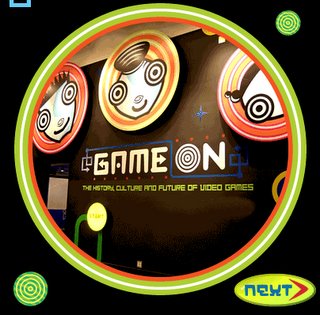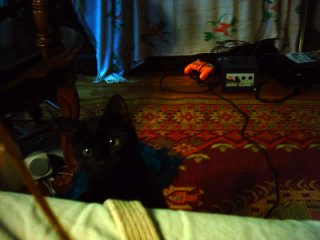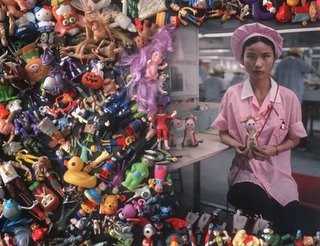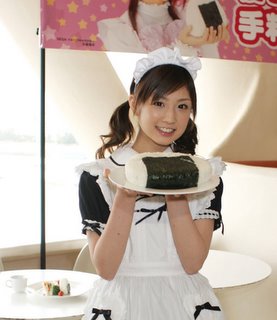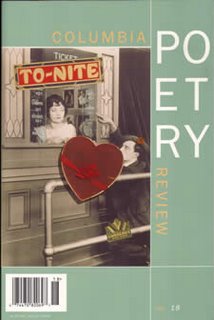
Is Major Motoko Kusanagi a progressive female protagonist or a femme fatale designed for male titillation?
There are three Majors: one in the manga, one in the two movies, and one in an anime series. Each are separate of each other. I'm focusing on, for the purpose of this blog entry, the Major Kusanagi of the anime series Ghost in the Shell: Stand Along Complex (along with the second season GitS: SAC 2nd Gig.) Warning: I'll be discussing some details of a few episodes, so some spoilers are ahead.
When I initially began watching this show, I was pretty damn excited. The Major is a kick ass character: she's smart, strong, leads a group of men and is vocal against sexism. She never needs to be saved, in fact she's the one usually "saving the day." I've never seen her fawn over, or kiss a man--in fact the most pseudo-romantic scenes that have been portrayed with her have involved women. (It's generally accepted that she's bi.)
But then there's the matter of her clothing: thigh high boots, a pink leotard that cuts up above
 the hips and dips deeply into her cleavage. Her breasts, are they C or D? I'm not sure, but you can't help but notice them. In general her body is perfect. A drawn fashion model.
the hips and dips deeply into her cleavage. Her breasts, are they C or D? I'm not sure, but you can't help but notice them. In general her body is perfect. A drawn fashion model.However, it's more complicated than that. Her body is completely prosthetic. If we are to take the episode 11 "The Grass Labyrinth -- AFFECTION" as her origin, we know that when she was young she was in a plane accident and the only way that she would live is if she underwent cyberization. This makes her whole body "fake." What does gender mean when you don't have a body? There are references to her gender through out the series. An important one was when Batou asked the Major why she chose a female body over a male body--a question she doesn't necessarily answer. Instead she mind-hacked him into punching himself in the face. What I can gather from this is that the Major is expressing that she doesn't need a pumped-up male body, that her own "female model" is just fine, and that the topic really isn't up for discussion. It's obvious that the Major takes pride in her body; it's the ultimate weapon that provides her income, it allows her to be mobile, and it lets her experience the five senses. Does she dress the way she does as a way to promote that her body because she takes great pride in it? Does she dress that way in order to feel feminine because her body is made out of machinery?
These were questions that I could ponder over without ever questioning that to me, the Major was a feminist hero. Yet, when I watched 2nd gig last Saturday, episode 17 "Mother and Child -- RED DATA," I became unsettled. Could I really claim her as my hero? Was she only created for the sake of fan service?
The premise of this episode is that the Major comes across a teenage boy while digging up information on a suspect. She then takes the boy under her wing because he's in trouble with the yakuza. This includes her renting out a hotel room for night. In this scene we watch the Major walk around topless with a red towel hanging around her neck. This shows no nipple but plenty of side-boob. She talks to the boy in this manner, and gets in bed with him like this.
We've seen the Major is various states of undress before but I always chalked it up to a) her loving her body or b) her not feeling as though she's really naked because her body is artificial. The images from this scene, and her teasing answer of "Do you want to find out?" to the boy's question of whether or not cyberized bodies could have sex made everything seem a bit much. The mocking answer to the boy fit in with her character, but all the boob shots seemed to be completely gratuitous.
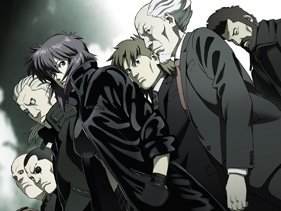
I've decided for myself that the character of the Major suffers from being written by too many male writers that want to please their predominantly male audience. (Look, Kusanagi kicks ass, just look at how she handles those guns, and she's really hot too!) I think in regards to the Major, we can have interesting discussions on gender and artificial bodies and the concept of nakedness, but we become limited with the proliferation of fan service--which focuses only on one kind of expression that exists to serve male heterosexuality.
It's good that it's not easy to discuss the character of the Major. It means that she's a complicated character, and that some time and energy has gone into writing her. I'm just disappointed that she's being used to promote the mainstream ideal of what feminity is. I know I wouldn't be typing this up if she was a male character (the issue of fan service wouldn't be happening)--but if she was a male character, I know I wouldn't be interested. I want to claim the Major as a representation of a progressive female protagonist, but do the sexualized representations of her negate the positive aspects of her character?



